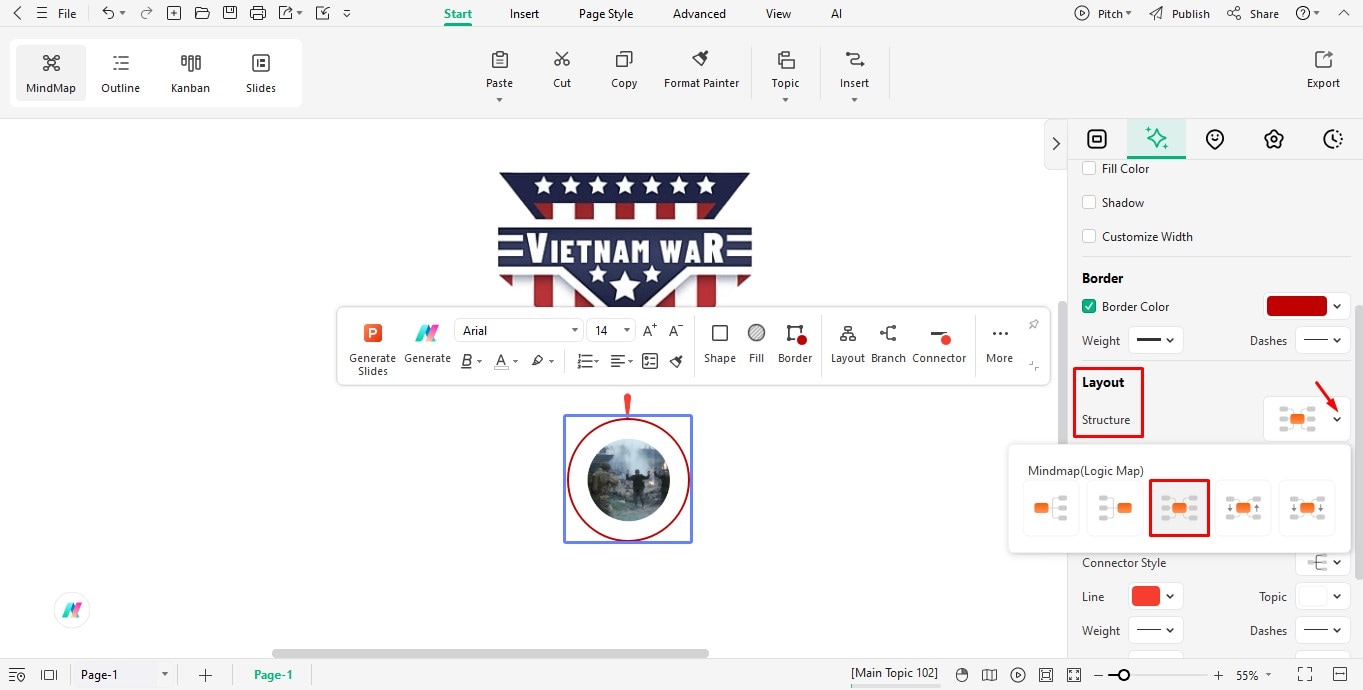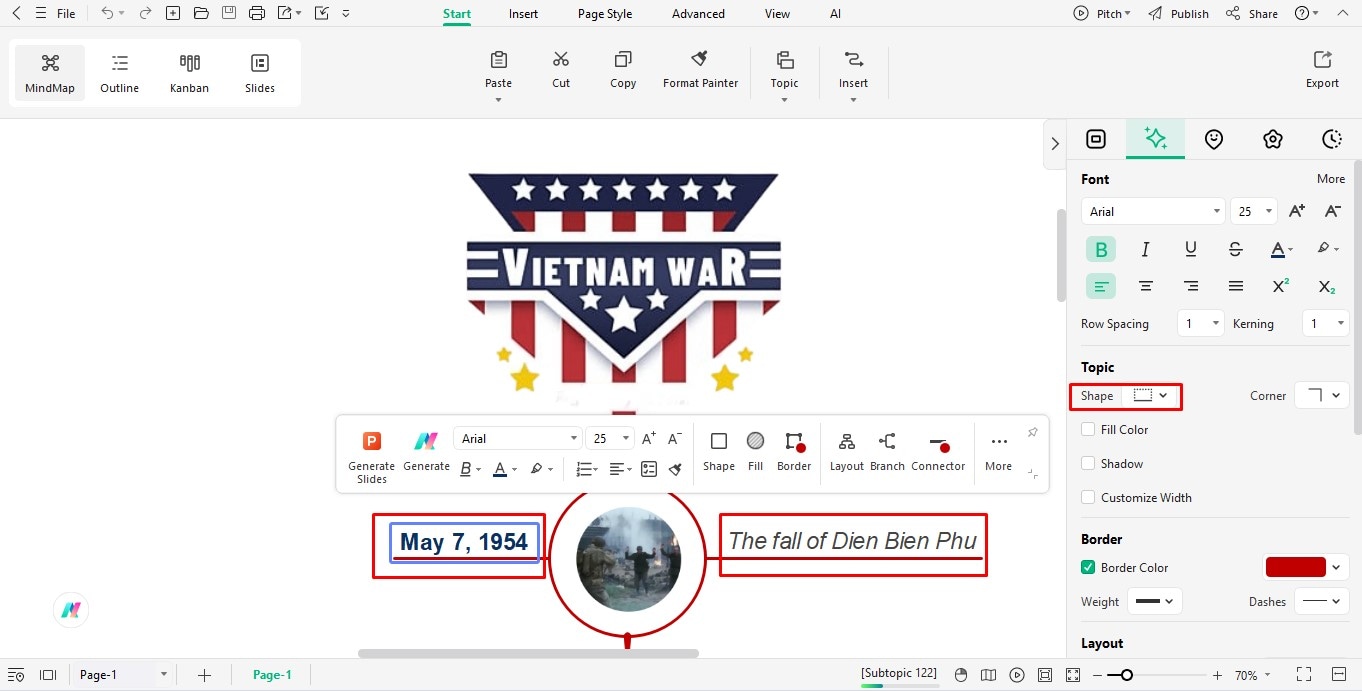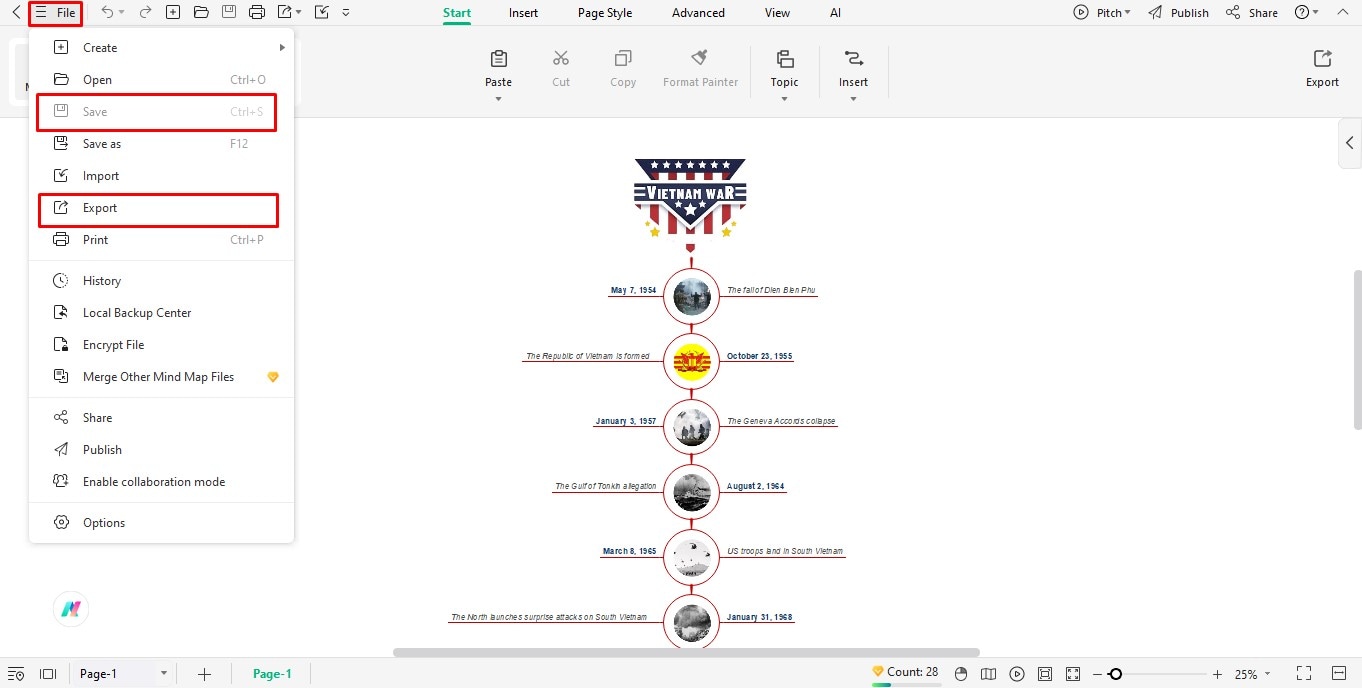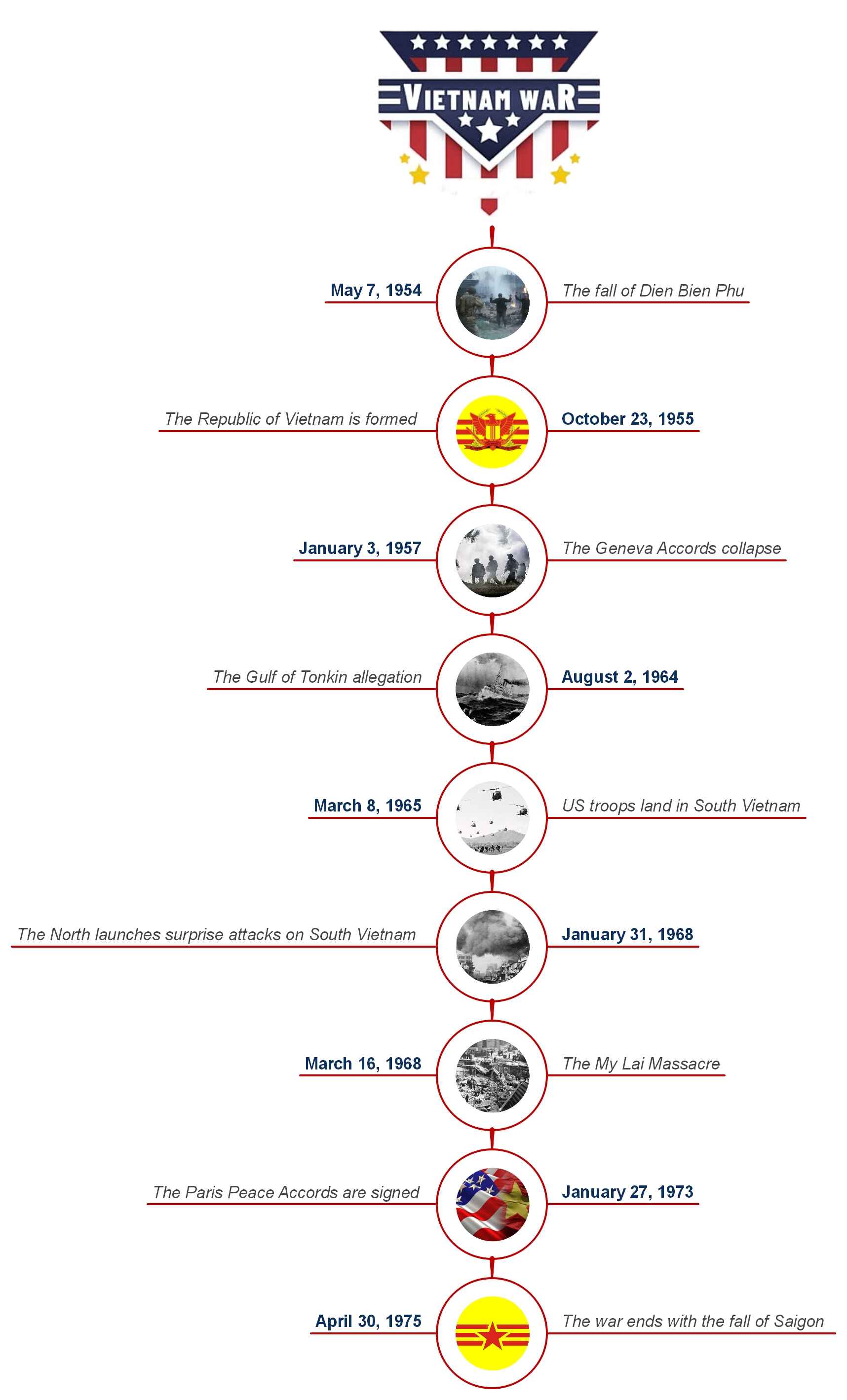The Vietnam War was one of the most significant and controversial conflicts of the 20th century. It began as a struggle between North and South Vietnam, but over time, several countries—including the United States, France, China, the Soviet Union, Cambodia, and Laos—became deeply involved.
The war wasn’t just long, lasting nearly two decades; it was also deadly, claiming the lives of more than three million people. Let’s learn more about this human horror from the Vietnam War timeline in detail.
In this article
Part 1: Timeline of the Vietnam War
While the Vietnam War officially began in the 1950s, the real conflict originated in the 1800s when the French colonised Vietnam. As part of French Indochina, the Vietnamese people had to survive years of oppression and unfair treatment. By the early 1900s, resistance movements within Vietnam grew stronger, eventually leading to the First Indochina War in 1946.
After almost a decade of fighting, the Vietnamese finally defeated the French. The Geneva Accords of 1954 split the country into North Vietnam (communist) and South Vietnam (anti-communist). But the worst was yet to come. The United States soon intervened, triggering another war—this time pitting the Vietnamese against each other in a devastating civil conflict.
Here’s a complete breakdown of the Vietnam War timeline to help you understand how the events unfolded—and why the war became a powerful lesson for the world.
May 7, 1954: The battle in Dien Bien Phu
General Vo Nguyen Giap marched against the colonizers with the Viet Minh forces. After a two-month siege in Dien Bien Phu, they crushed the ruling French military. The fall of Dien Bien Phu was significant as it proved that local populations could topple better-equipped foreign forces.
October 23, 1955: The Republic of Vietnam is formed
The Geneva Accords of 1954 marked the French exit from Vietnam. The treaty separated the country along the 17th parallel, turning the southern half into the Republic of Vietnam. Ngo Dinh Diem became president of this new state.
This split ran deeper than varied ideologies and eventually led to full-scale war.
January 3, 1957: The Geneva Accords Failure
According to the Geneva Accords, a nationwide election was supposed to be held in 1956. However, both South and North Vietnam refused to meet the agreement’s terms, bringing an end to the diplomatic solution. The US seized this opportunity and increased its involvement in South Vietnam. All the while, fueling a dangerous narrative against the communists.
August 2, 1964: The alleged attack on the US ship
Although the US was brewing tensions within Vietnam, a push was needed before they could target the communists directly. That’s why, when the USS Maddox claimed that North Vietnamese forces attacked it in the Gulf of Tonkin, everyone was skeptical. Whether or not the allegation was true, the US forces found the excuse they needed for the ultimate military intervention.
March 8, 1965: US troops land in South Vietnam
This is when the first battalion of American troops landed in South Vietnam. 3,500 marines joined the anti-communist forces, a move that changed the dynamics of the civil conflict. Over the next decade, thousands of American soldiers would fight in the Vietnam War, and almost 58,000 would be killed in action.
January 31, 1968: Surprise attacks on South Vietnam
On January 31, 1968, North Vietnamese forces, along with the Viet Cong, attacked over a hundred cities and outposts in the Southern parts. Since the date of the onslaught coincided with the New Year holiday, it became famous as the Tet Offensive.
Although the Southern forces, with the help of the US army, managed to squash the perpetrators. The surprise attacks proved the Northerners were more agile and organized than previously believed.
March 16, 1968: The My Lai Massacre
The US soldiers from Charlie Company, led by Lieutenant William Calley, killed hundreds of innocent civilians in the village of My Lai. This army's brutality was kept hidden by US authorities. But the truth eventually came out, triggering strong anti-war sentiments across Vietnam and the US.
January 27, 1973: Signing of the Paris Peace Accords
The Paris Peace Accords were signed, calling for an immediate ceasefire between the two civil forces within Vietnam. It also mandated the US to cease its direct involvement in the conflict. Hence, after losing thousands of American lives and taking even more Vietnamese, the US decided to withdraw its combat forces from South Vietnam.
Prisoners of war on both sides were returned home. And the Northern troops stationed in the South were allowed to stay.
April 30, 1975: The toppling of Saigon
The North Vietnamese forces launched a powerful offensive across South Vietnam in early 1975. One by one, all the cities in South Vietnam were captured by the opposition.
Without the US troops to support them, the South Vietnamese defenses quickly broke down in the face of the aggressive onslaught.
Finally, on 20 April 1975, they surrounded Saigon, the capital of South Vietnam. Ten days later, the forces used tanks to breach the Presidential Palace. South Vietnam’s president surrendered, and Saigon was renamed Ho Chi Minh City after the North’s leader.
Part 2: How to Create a Timeline using EdrawMind?
Want to create a timeline? Try EdrawMind. This timeline maker tool offers a variety of built-in templates to help you save time when making diagrams. You can also build a timeline from scratch using its powerful customization features. The best part? It’s beginner-friendly and easy to use. So you don’t need to be a design expert to create professional-looking timelines.
Simply download EdrawMind and launch the app in your browser to get started.
Step 1: Open a blank canvas
Launch the EdrawMind app or use EdrawMind online.
Sign in with Wondershare or a social account. Select Create > Local Mindmap.

Step 2: Change the layout
Click Main Idea to reveal options. Select Layout > Down timeline.

Step 3: Insert image as heading
Remove text from the Main Idea box. Insert > Picture > Upload image. Remove the outline in the Style panel

Step 4: Edit the main topic
Change shape and border color. Add central image.

Step 5: Change layout structure
Click Main Idea > Layout. Choose the third structure option.

Step 6: Add subtopics
Press Tab twice for subtopics. Add dates on the left, events on the right. Customize shapes for each.

Step 7: Export Timeline Image
File > Save for default format.
Export for JPEG, PDF, and more.

Concluding Thoughts
The Vietnam War was brutal and claimed many precious lives. But the conflict taught the world many important lessons. The first one was for the Vietnamese people who managed to persevere in the face of external forces like the US. The second one was for the US itself, which had to reevaluate its global position and the human cost of fighting other people's wars.
When the war was finally over, Vietnam had to follow a difficult path of reconstruction and reconciliation. But the Vietnamese spirit and commitment helped it emerge as a unified nation. Want to create a detailed timeline of the Vietnam War? Download EdrawMind and explore its powerful diagramming capabilities.






